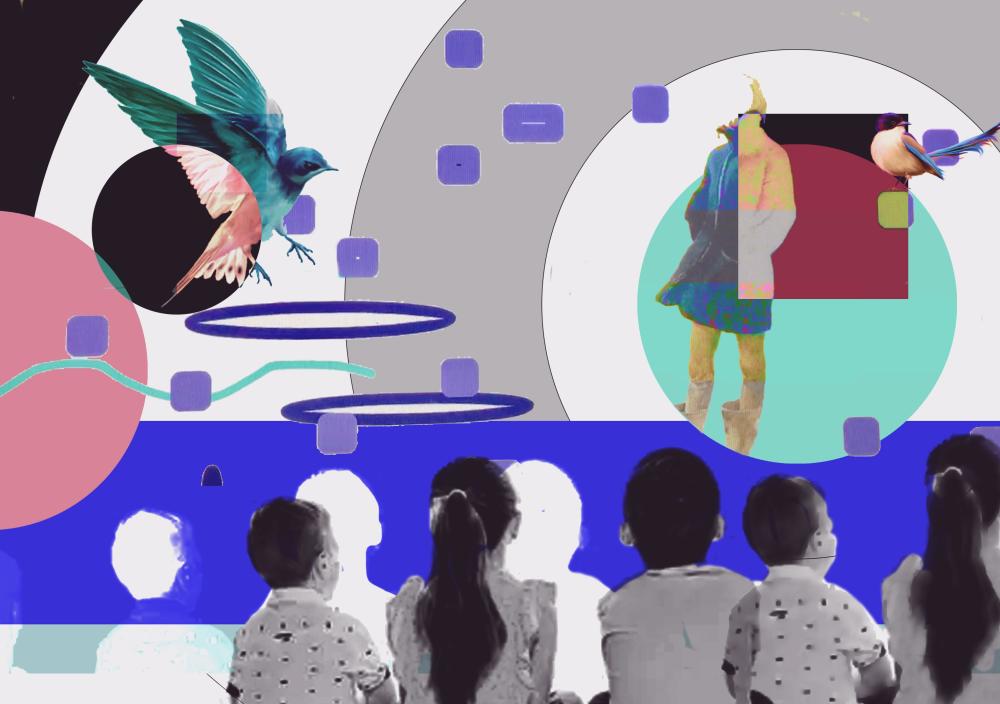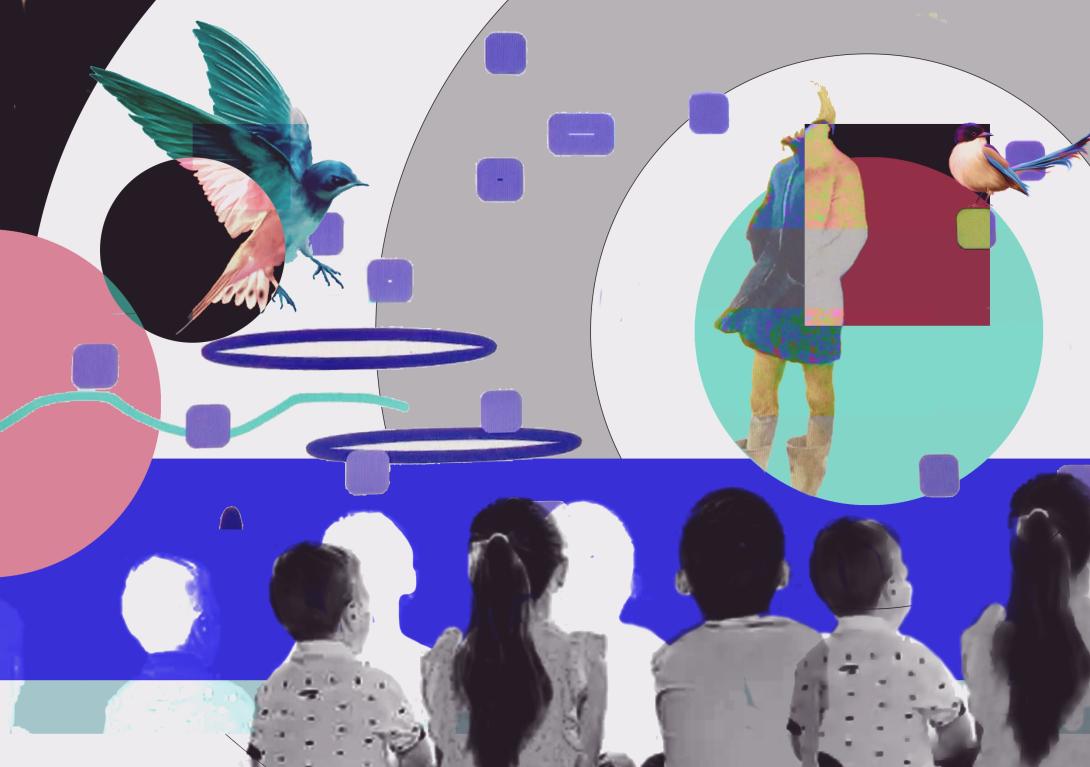Working group: the theatre experience for the children of the future?
in the frame of How to Live & Work Now?
How to develop better ways of working in the performing arts sector today – and in the future? As part of How to Live and Work Now?, we are inviting six artists, collectives and researchers to set up self-organized collective working groups.
For Satchit Puranik, Pranav Patadiya and Eszter Némethi, 2020 was a year of impossible conversations about the future – from a distance and in proximity –, that brought their working group together. The central question for their research is: how do we reimagine the ‘theatre’ experience for the children of the future?
This question came out of shared interests and occupations: together with his partner Anitha Santhanam, Satchit was about to premiere a children’s play in April 2020, when the safest place in the world – the stage – suddenly became dangerous. While Eszter and Satchit had bonded over the documentary theatre genre in 2013, last year they ‘ran’ into each other virtually at Kaaitheater for an impossible conversation on the future by Building Conversation. Satchit and Pranav founded Chikka Dodda Art Lab in June 2020 to blur the lines between art and activism. Eszter joined them, having just created a book and theatre piece with terminally ill children which made her question her own notions of the future on the eve of the pandemic. Meanwhile, Anitha and Satchit are expecting their first child!
They will be working together across Bangalore and Brussels, and in collaboration with children aged from 6 to 12 years, on a theatre sample toolkit that can be used in their virtual classroom-theatre platforms. How does the world of the fable ignite the imagination of children? What conventional forms have these fables been adapted to in the performative sense? How do we deconstruct, dissect, disrupt, and reconstruct the theatre experience for children? How do the concepts of playground, workshop, theatre space, performance, audience reshape in the context of multimedia, physical distancing and open space sessions in ventilated libraries – in times of listening rooms and open air screenings?
Eszter Némethi (1987, Budapest) is interested in the space between people, contexts and ideas and creating structures (practical, dramaturgical and spatial) that can be inhabited by others. When not inventing theatre for the children of the future she is developing a radio-theatre work Speak Like No One in Particular about the politics of listening or setting up the artistic-pedagogical practice the School of Magical Politics. She is co-curator of MOTA and a graduate of a.pass.
Pranav Patadiya lives and works in Bangalore and is a theatre and film maker. He is co-founder of the amateur theatre group Tanaririn, which has been actively doing Hindi and English plays for the last six years in Bangalore. Together with Satchit, he is a co-founder of Chikka Dodda Art Lab which looks at the intersection of art practices and activism. Their first film is the collage film Mard Humdard/Male Empath, an essayistic documentary about non-toxic masculinity in Hindi cinema.
Satchit Puranik is a multilingual writer, theatre maker and film maker. As a theatre maker, he made Karl Marx In Kalbadevi, Loitering, Ammi Jaan (with Anitha Santhanam), Family 81, Mahabharata (with Frascati Production) and he collaborates with Building Conversations. He is co-founder of Chikka Dodda Art Lab and works with MAVA – Men Against Violence & Abuse (Mumbai).
Anitha Santhanam is a seasoned performer, educator and facilitator based in Bangalore working at the intersection of performing arts, therapy and healing. She is a two time awardee of the Charles Wallace India Trust scholarship (2007, 2012) through which she completed her training in physical theatre at LISPA, London. During her studies in London, she trained under Thomas Prattki, the founder director of LISPA, in a theatre-based approach to Jungian inner work as part of her pedagogical training. In Bangalore, she has worked with children in the age group of 3-12 from 2003 onwards, both as a physical theatre facilitator and as director of devised performances. During her stay in London, Anitha also trained with ARTIS, an organisation that specialises in integrated arts-in-education in schools and with JABADAO on developmental movement play for early years.


